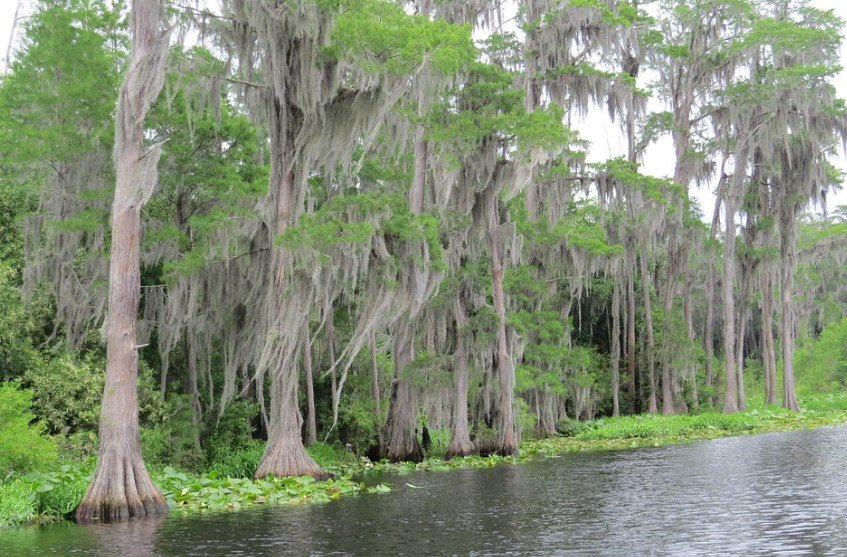After years of environmental debates, public hearings, and state-level reviews, the controversial mining permit next to Georgia’s treasured Okefenokee Swamp now faces a different kind of delay — a missing check.
The Georgia Environmental Protection Division (EPD) says it’s done all the paperwork. The only thing keeping Twin Pines Minerals, LLC from moving forward is a financial assurance payment of roughly $2 million. Until that hits the account, the permit’s on ice.
A Battle Years in the Making
This isn’t some overnight fight. The mining proposal near the Okefenokee National Wildlife Refuge has been on Georgia’s radar for more than five years.
Since 2019, locals, scientists, tribal groups, and environmental advocates have pushed back. They say digging titanium from the sand ridges near the swamp could mess with the region’s delicate hydrology. And it’s not just sentimental concern — the Okefenokee is a federally protected area, and one of the largest intact freshwater wetlands on the continent.
Yet despite the uproar, Twin Pines pushed ahead. The company trimmed down its permit request in 2023, hoping a smaller plan would get it across the finish line. And for a moment, it looked like it might.
All Eyes on the Money
Now, with the EPD saying all technical hurdles are cleared, Twin Pines just needs to pay up.
What’s this $2 million for? Think of it like a refundable security deposit. In Georgia, mining applicants are required to pay what’s known as a “financial assurance.” It’s meant to cover potential damages or cleanup costs if something goes south on site.
Peter Slag, an associate attorney at the Southern Environmental Law Center, compared it to how renters have to fork over cash before moving in. If the company walks away or the mine causes damage, the state has a pot to pull from.

A Swamp Steeped in Significance
People aren’t just fighting over dirt. The Okefenokee Swamp is sacred to many.
-
It’s home to rare species like the indigo snake and red-cockaded woodpecker.
-
It draws more than 600,000 visitors annually.
-
It’s a UNESCO-designated wetland of international importance.
And beyond ecology, it’s economically meaningful too. According to a 2022 University of Georgia study, eco-tourism in and around the swamp pumps more than $64 million into the region each year.
This isn’t just about trees and gators. It’s about people’s livelihoods, too.
Delay Tactics or Corporate Caution?
Some critics see Twin Pines’ delay in payment as a stalling move.
Why? Because political winds are shifting. With Donald Trump back in office and environmental deregulation back on the table, waiting it out could mean looser restrictions down the line. If that’s the strategy, it could be working.
Others suggest the delay might be more basic — maybe the company’s reviewing liability exposure or dealing with funding issues.
Still, silence from Twin Pines isn’t helping their case in the court of public opinion.
Permitting, Politics, and Public Outrage
Georgia EPD insists it’s done everything it legally can — for now.
Their job is strictly administrative: evaluate the application, review environmental assessments, open it to public comment, and either approve or deny it based on the letter of the law. They say they’ve done all that.
Table below shows the major permit milestones so far:
| Year | Event | Description |
|---|---|---|
| 2019 | Permit Announced | Twin Pines announces plan to mine near Okefenokee |
| 2020 | Public Outcry Begins | Environmental groups begin campaigns |
| 2023 | Revised Permit Submitted | Twin Pines scales back original proposal |
| 2024 | Scientific Reviews Conclude | EPD completes hydrology and ecological analysis |
| 2025 | Final Approval Pending Financial Assurance | EPD says all that remains is payment of $2 million |
Still, lawsuits and legislative pressure could gum up the works anyway.
Federal Oversight Still Possible
Meanwhile, the federal government hasn’t weighed in — yet.
In 2020, the Trump administration rolled back key protections under the Clean Water Act, which gave the state exclusive permitting authority. But environmental groups are lobbying hard for the U.S. Fish and Wildlife Service to intervene under the Endangered Species Act.
One sentence paragraph for effect.
If that happens, even a paid-up permit might not mean much.
No Timeline, No Transparency
What’s frustrating locals and environmentalists alike is the lack of clarity.
How long does Twin Pines have to pay? What happens if they don’t? Is there a deadline?
The EPD hasn’t said. And the company isn’t talking.
It leaves residents in limbo, wondering whether the silence is good news or bad news. They’ve fought too long and too hard for the future of the Okefenokee to be decided by an unpaid invoice.
